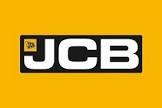J C Bamford Excavators Ltd (JCB)

Estimated electricity consumption
N/A
Countries of production presence
N/A
J C Bamford Excavators Ltd (JCB) is a British multinational corporation that specializes in manufacturing construction and mining machinery. The company was founded in 1945 by Joseph Cyril Bamford, and it is headquartered in Rocester, Staffordshire, United Kingdom. JCB has a global presence, with manufacturing facilities in the UK, India, Brazil, and the United States, and it exports its products to over 150 countries worldwide.
JCB's product range includes excavators, backhoe loaders, telehandlers, skid steer loaders, wheel loaders, and compactors, among others. The company has a reputation for innovation and quality, and it has won numerous awards for its products over the years. JCB's machines are used in a variety of industries, including construction, agriculture, mining, and waste management.
Decarbonisation is a key issue for JCB, as it is for many companies in the construction and mining machinery sector. The company is committed to reducing its carbon footprint and has set ambitious targets for reducing its greenhouse gas emissions. JCB has a comprehensive sustainability strategy that covers all aspects of its operations, from manufacturing to product design to supply chain management.
One of the ways that JCB is working to decarbonize its operations is by investing in renewable energy. The company has installed solar panels at its manufacturing facilities in the UK and India, which generate a significant proportion of the electricity used by the plants. JCB is also exploring the use of other renewable energy sources, such as wind and biomass, to further reduce its reliance on fossil fuels.
Corporate energy is another area of focus for JCB. The company is working to improve the energy efficiency of its operations, both in terms of manufacturing processes and building management. JCB has implemented a number of energy-saving measures, such as upgrading lighting systems and installing energy-efficient equipment. The company has also introduced a range of employee engagement initiatives to encourage staff to reduce their energy use at work and at home.
JCB is also exploring the use of corporate power purchase agreements (PPAs) to support its renewable energy goals. A corporate PPA is a contract between a company and a renewable energy supplier, which guarantees a fixed price for the electricity generated by the supplier's renewable energy project. This can provide a stable, long-term source of renewable energy for the company, while also supporting the development of new renewable energy projects.
In 2019, JCB signed its first corporate PPA with a wind farm in Scotland. The agreement will see JCB purchase all of the electricity generated by the wind farm for the next ten years, providing the company with a reliable source of renewable energy and helping to support the development of new renewable energy projects in the UK.
JCB's commitment to sustainability is reflected in its product design and development. The company is constantly looking for ways to make its machines more efficient and environmentally friendly. For example, JCB has developed a range of hybrid and electric machines, which use significantly less fuel than their conventional counterparts. The company has also introduced a number of features to improve the fuel efficiency of its machines, such as auto-stop technology and eco-modes.
JCB's focus on sustainability has not gone unnoticed. The company has won a number of awards for its environmental initiatives, including the Energy Efficiency Award at the 2019 BusinessGreen Leaders Awards and the Sustainable Manufacturer of the Year Award at the 2018 edie Sustainability Leaders Awards.
In conclusion, J C Bamford Excavators Ltd (JCB) is a leading manufacturer of construction and mining machinery, with a global presence and a reputation for innovation and quality. The company is committed to decarbonisation and sustainability, and it is taking a range of measures to reduce its carbon footprint and improve its energy efficiency. JCB's investment in renewable energy, corporate energy initiatives, and product design and development are all helping to support the transition to a low-carbon economy, while also providing benefits for the company and its customers.